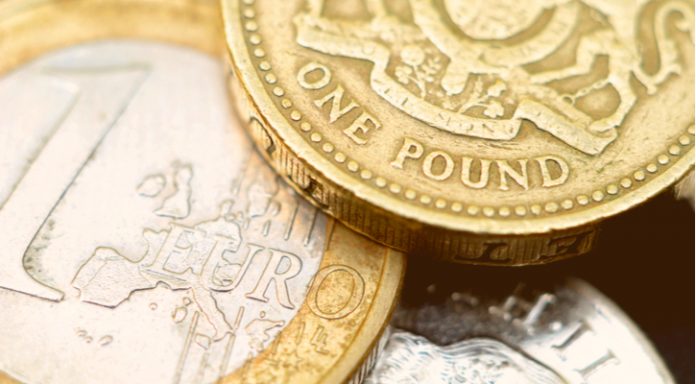The Pound Euro exchange rate is extending gains after powering higher in the previous session. The pair settled +0.3% higher at €1.1230, just off the high of the day at €1.1251 a level last seen in early June. At 05:51 GBP/EUR trades +0.1% at €1.1242.
- Pound (GBP) holds gains as footfall increased by 6% last week boosting hopes that the consumer sector is recovering
- Manufacturing output rise at the fastest pace in 6 years as the sector continues to rebound post pandemic
- Euro (EUR) dropped as inflation unexpectedly turned negative in July
- German retail sales expected to rebound
The Pound pushed higher in the previous session as British manufacturing continued to show signs of recovery following the covid pandemic; factory output jumped last month at the fastest clip in 6 years.
The IHS Markit / CIPS manufacturing PMI rose to 55.2 in August, up from 53.5 in July. This was approximately in line with the initial estimate of 55.3, the highest level since February 2018. Meanwhile the strength component to the report rose to the highest level since May 2014. However, job losses were also widespread across the sector.
UK shopper numbers are also supportive of the Pound. Footfall across retail destinations increased 6% in the week ending 29th August thanks in part to Chancellor Rishi Sunak’s eat out to help out scheme. Annual, footfall is down -26.1% and improvement on the -30% decline recorded the week prior and the smallest decline since the start of lockdown. Although it will be interesting to see whether these figures hold up now the Chancellor’s scheme has ended.
Investors will look ahead to an appearance by Bank of England Governor Andrew Bailey as he appears before the Treasury select committee.
The Euro slipped lower in the previous session as inflation in the region unexpectedly turned negative. Eurozone consumer price index (CPI) fell well short of expectations last month diving from +0.4% to -0.2%. Whilst softer inflation was expected, the dip into negative territory wasn’t. As a result, the Euro slumped lower across the board.
Today German retail sales will be under the spotlight. Analysts are expecting retail sales to increase +0.5% month on month in July, a solid improvement from June’s -1.6% decline.





